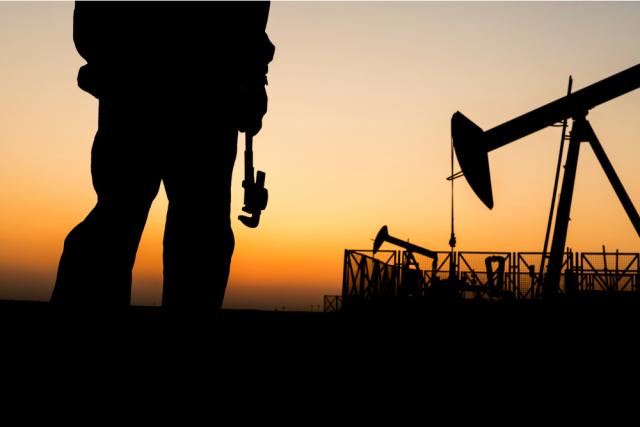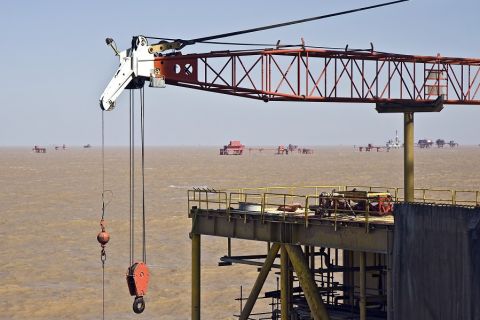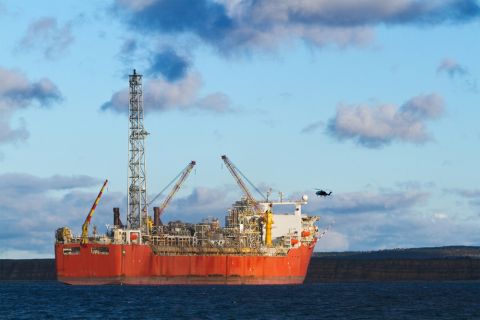
However, the timing of the last oil boom still remains uncertain and will depend on several factors including lingering lockdown restrictions. (Source: Shutterstock.com)
As economies begin reopening, the post-pandemic demand recovery will lead to one of the strongest-ever growth periods for oil demand. Although this supercycle will be unlike earlier oil price booms, according to a new report by Boston Consulting Group (BCG).
“Although BCG does not make price forecasts about oil or other products, we do anticipate that this cycle will cause a substantial rise in prices well in excess of the $75/barrel Brent market level we are close to at present,” Rebecca Fitz, senior director of BCG’s Center for Energy Impact, told Hart Energy.
“These prices, well above long-run marginal costs, are unlikely to last past 18 months, given the elasticity of the system for both supply and demand is much higher,” Fitz continued. “As the boom wanes, prices will fall sharply, with long-run marginal costs also declining.”
RELATED:
Oil Likely to Hit $100 a Barrel, Say Top Traders
Additionally, the supercycle should also pave way for decarbonization and the energy transition, including a higher adoption rate of electric vehicles (EVs).
“The energy transition should accelerate since higher prices will incentivize end-users to move away from oil product purchases, increasing the pace of EV penetration into the fleet,” she said.
As a result, Fitz noted energy companies will have additional capital to deploy toward low-carbon projects. In particular, she believes technologically advanced companies will grasp the opportunities created by rising prices to repair their balance sheets, refine their strategies and increase investment in lower-carbon energy businesses.
However, the timing of the last oil boom still remains uncertain and will depend on several factors including lingering lockdown restrictions due to the appearance of new COVID-19 variants. Any increase in global oil supply from OPEC+, particularly Iran if the Biden administration were to remove economic sanctions, also adds to the uncertainty.
“Uncertainty around how these different forces play out makes it tough to predict when the boom will start or how high prices will go,” the report stated. “We will not speculate on potential future price levels. But in terms of timing, an oil price boom based on a fundamental supply-demand imbalance could start as early as the third quarter of 2021 or be delayed until 2022. And there are good reasons to believe that it will not last for decades. Indeed, in our view, it could be over in 12 to 18 months.”
So, how will the supercycle impact oil and gas businesses?
“If used correctly, a price upcycle will strengthen the financial standing of oil and gas companies,” Fitz explained.
Balance sheet strengthening, followed by increased shareholder distributions, are priorities for any excess free cash flow, which could augment the value creation potential of oil and gas companies in the short term.
“At the same time, for companies looking to reposition and decarbonize over a longer period, increased profitability should create more bandwidth to diversify capital allocation into new lower-carbon growth areas,” Fitz said.
“Even with higher prices, continuous improvement in capital efficiency will be critical to managing an energy transition,” she added.
Recommended Reading
Oceaneering Won $200MM in Manufactured Products Contracts in Q4 2023
2024-02-05 - The revenues from Oceaneering International’s manufactured products contracts range in value from less than $10 million to greater than $100 million.
E&P Highlights: Feb. 5, 2024
2024-02-05 - Here’s a roundup of the latest E&P headlines, including an update on Enauta’s Atlanta Phase 1 project.
CNOOC’s Suizhong 36-1/Luda 5-2 Starts Production Offshore China
2024-02-05 - CNOOC plans 118 development wells in the shallow water project in the Bohai Sea — the largest secondary development and adjustment project offshore China.
TotalEnergies Starts Production at Akpo West Offshore Nigeria
2024-02-07 - Subsea tieback expected to add 14,000 bbl/d of condensate by mid-year, and up to 4 MMcm/d of gas by 2028.
US Drillers Add Oil, Gas Rigs for Third Time in Four Weeks
2024-02-09 - Despite this week's rig increase, Baker Hughes said the total count was still down 138 rigs, or 18%, below this time last year.




